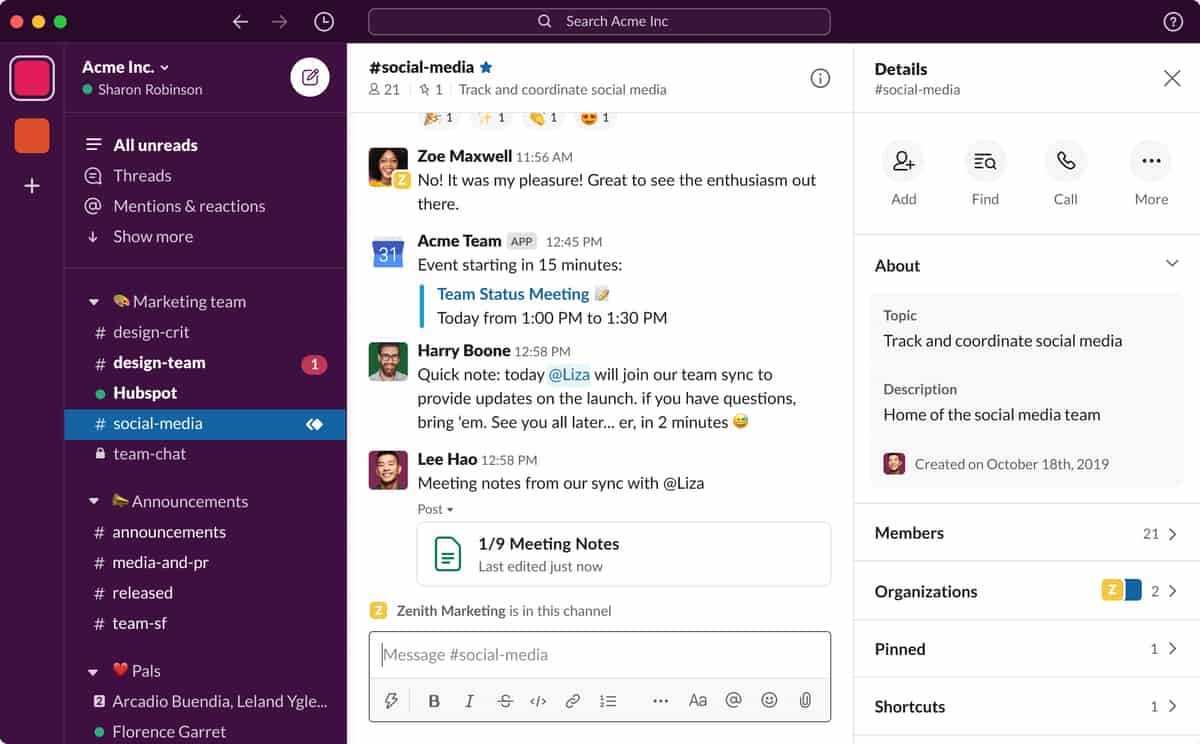As the coronavirus outbreak continues to cut a devastating path across the nation and our world, most of us have had to recalibrate what a “normal workday” looks like. After converting our dining rooms to courtrooms and our couches and kitchens to full-time workspaces, there’s no denying that the pandemic is significantly changing the 2020 legal landscape.
One of the biggest concerns for law firm owners right now is figuring out how to manage their teams while going weeks (or months) without seeing them face-to-face.
If this is your first time managing or working within a fully remote team, you’re probably realizing that working from home just isn’t the same as collaborating with your team in the office.
Learning how to manage your team from afar is no easy feat — but it’s a necessity if you want to maintain business operations and continue to work towards your 2020 goals. And with remote work culture on the rise (almost 25% of the U.S. workforce works from home full-time), building out clear remote-work policies and procedures now will sustain your team through the pandemic and set you up for greater success in the future.
Fortunately, you’re not the only business owner trying to solve these challenges right now. There are a variety of tools and resources at your fingertips that will help you navigate this new work environment.
In this article, we’ll go over everything you need to know to keep your team engaged, accountable, and productive while working from home.
What we’ll cover:
- How to set up your law firm to operate remotely
- How to foster engagement for remote law firm teams
- How to keep your remote law firm team accountable
- How to boost your remote law firm team’s productivity
How to Set Up Your Law Firm to Operate Remotely
Before we dive into how to manage your law firm’s team remotely, you first need to make sure that your team has everything they need to perform their duties from home efficiently.
Working remotely may present many challenges for law firms, such as:
- Communication issues
- Document accessibility and security concerns
- Technical difficulties with computers and Internet connectivity
But with the right tools in place, you can proactively prevent or reduce these issues so they don’t impede progress.
Communication tools for your remote law firm team
First things first: you need a reliable communication channel. Email isn’t great at facilitating real-time conversations, and most chat platforms have limited functionality with respect to file-sharing or integrations with external platforms.
Using a collaboration tool like Slack is a great solution for ongoing communication. You can use this platform to check in with your team throughout the day, give quick updates, and send out important reminders. Your team can use it for file sharing, one-on-one or group conversations, video chatting, and project management.

Another great practice to maintain consistent communication with your remote law firm is to stick to a regular meeting schedule.
There are a variety of videoconferencing tools like Zoom, RingCentral, and Google Hangouts that will allow you to chat with everyone on your team simultaneously.
A quick note about video meetings: many teams may find themselves overcompensating for a lack of face-to-face communication by scheduling an abundance of meetings to ensure everyone is on the same page. While that’s not necessarily a bad practice, don’t let yourself fall into the habit of monopolizing your team’s time just to provide updates that could’ve been shared in an email.
Remember — if they’re in meetings all day, they won’t have any time to work on revenue-driving activities.

Document management tools for your remote law firm team
While your team works remotely, they’ll need easy (and secure) access to client documents. Getting set up with a document management tool like FileVine, Needles, or Clio can take care of both of these issues. These platforms store all of your client information safely in a single accessible location.

Managing technical difficulties
Technical difficulties involving hardware and software are common in any office environment. But they may be more commonplace in a home office environment, where your team likely doesn’t have a dedicated IT professional on hand to help them troubleshoot any pesky connectivity issues.
First, come to terms with the fact that a few members of your team are probably dealing with suboptimal working conditions at home. Encourage them to communicate any issues early and often. If you can, make sure they all have the necessary equipment, their applications are up-to-date, and that everything is running smoothly. When possible, grant them access to the office so they can swing by to grab an extra monitor, charger, or any other items that will help them out at home.
You should also check in with your teammates to make sure that everyone has an internet bandwidth of at least 1.5mbps up/down at home to accommodate their remote work needs.
Finally, recognize that there may be times where a member of your team experiences an interruption in internet access or runs into other technical difficulties and they lose access for the day.
Breathe — things will be okay.
Trust that your team will work together to shift around workloads to accommodate any unforeseen changes and work quickly to help them restore access.
How to Foster Engagement for Remote Law Firm Teams
Studies have shown that companies with highly engaged team members are 21% more profitable. This goes to show that keeping your team engaged is one of the best ways to improve your law firm’s bottom line.
As important as engagement is in the office, it becomes increasingly more important when your team is remote.
Here’s the thing: remote work is lonely. Loneliness was listed as the second biggest downside to working from home permanently in the 2019 Buffer State of Remote Work Report. And when we’re all living in a world where we’re currently discouraged from venturing out to work for the afternoon in our favorite coffee shop, we’re left with limited options on how we can get our daily dose of human interaction.
Working from home can also be incredibly distracting, especially if you have little ones at home who you may have to monitor closely. Many of your employees are no longer just “employees” — they’re babysitters, teachers, housekeepers, and caretakers. If one of your associates is now homeschooling three children under the age of 12 and has to take Wednesday afternoons off to help them catch up on homework, make sure you’re not scheduling Wednesday afternoon check-ins with them.
These are complex issues.
When you live where you work, it can be difficult to avoid distractions and fully focus on the task at hand. Over time, extended isolation and physical separation can cause your employees to feel less “belonging” in your team, which affects company morale and may result in increased attrition.
So what can you do?
As a business owner, the first and most important thing you can do is stay in tune with how your employees are feeling and responding to the issues at hand. Make sure your team has a go-to person to ask questions or raise concerns, whether it’s their manager, your HR team, or even you.
Creating an open forum in which your team knows they can voice their concerns or address ongoing issues will ensure that you stay on top of small issues before they become big problems.
Overall, ensuring that your teammates stay up-to-date with details like your firm’s numbers, overall morale, and client satisfaction levels makes it easier for everyone to:
- Prioritize key initiatives
- Communicate with their fellow team members
- Meet your clients’ most pressing needs
- Maintain systems and processes while out of the office
When it comes to boosting and maintaining your team’s engagement, nothing works better than effective communication.
During times like these when your team is out of the office, it’s easy for messages to be missed or lost in translation. Instruct your leadership team to establish a regular cadence of check-ins with their direct reports (just make sure you’re not monopolizing their calendars). Make sure you’ve clearly communicated what your expectations are for the team in terms of the frequency and means of communication.
Something as simple as having a check-in meeting with your team first thing in the morning and once again before they close out the workday can boost engagement and communication amongst your teammates by:
- Keeping everyone up-to-date on the progress of high-priority initiatives
- Giving your teammates a chance to ask questions and share updates
- Allowing your team to reconnect to boost morale
How to Keep Your Remote Law Firm Team Accountable
To keep your business moving forward, it’s important to make sure that your teammates are doing what they need to do to drive results. You have to hold them accountable for moving the needle on the highest-priority projects.
You should note that accountability involves more than just checking off a to-do list.
Truly holding your teammates accountable requires concrete planning, public follow-through, ownership, and measurable goals. It also means you have to empower them to own the results they deliver no matter what.
According to the American Society of Training and Development (ASTD), people are 65% more likely to complete a goal if they commit to someone.
Here’s how this could work in practice: ask each team member to commit to completing three concrete, high-priority tasks during each morning check-in meeting. Have them share their progress at the end of each day.
This has been a standard practice amongst the Crisp team long before the coronavirus pandemic. Since we’ve gone remote, we’ve also incorporated the use of a public accountability platform called CommitTo3. This platform allows each of your team members to input their daily accountabilities and check them off throughout the day as they complete them.

How to Increase Your Remote Law Firm Team’s Productivity
Now that you’ve figured out some actionable ways to make sure your team gets stuff done, it’s important to make sure these tasks are being completed efficiently.
When your law firm goes remote, you need to maintain the same level of output as you would while working at the office. Like we mentioned earlier, it’s easy for your teammates to get distracted by their environment while working from home. Here are a few strategies that can help your team boost its productivity:
Streamline Your Processes
Establishing effective processes for your law firm’s daily tasks will help you ensure that results are delivered consistently.
Creating thorough processes involves listing out each step that needs to be done to complete a task and determining which member of your team is accountable for it.
You can create processes for tasks like:
- Client intake
- Case management
- Document management
- Marketing and client relations
Encourage Collaboration
Just because your team isn’t co-located doesn’t mean they can’t work together on high-velocity initiatives. There’s an entire network of remote work solutions that can facilitate collaboration and streamline the project management process, so your team can work together even when they aren’t face-to-face.
If you’ve followed the above recommendations (equipping your team with the right tools, establishing an open forum, setting clear expectations, and fostering engagement), team collaboration will come much easier. The biggest obstacles you’ll have to overcome are disorganization and miscommunication.
If you can empower your team to problem solve, prioritize effectively, and work together towards common goals, collaboration won’t be an issue.
Final Thoughts
It’s true — managing your law firm’s team remotely isn’t as easy as managing your team in the office.
But during this volatile time, learning to successfully manage your remote team is vital if you want to reopen your doors once things subside.
Thankfully, using these strategies to boost your law firm team’s engagement, communication, accountability, and productivity will help you continue to drive results as your team works from home.
The good news is that if you can trust your team to deliver while they’re not under your watchful eye, you can expect even better results once everyone’s back in the office.







